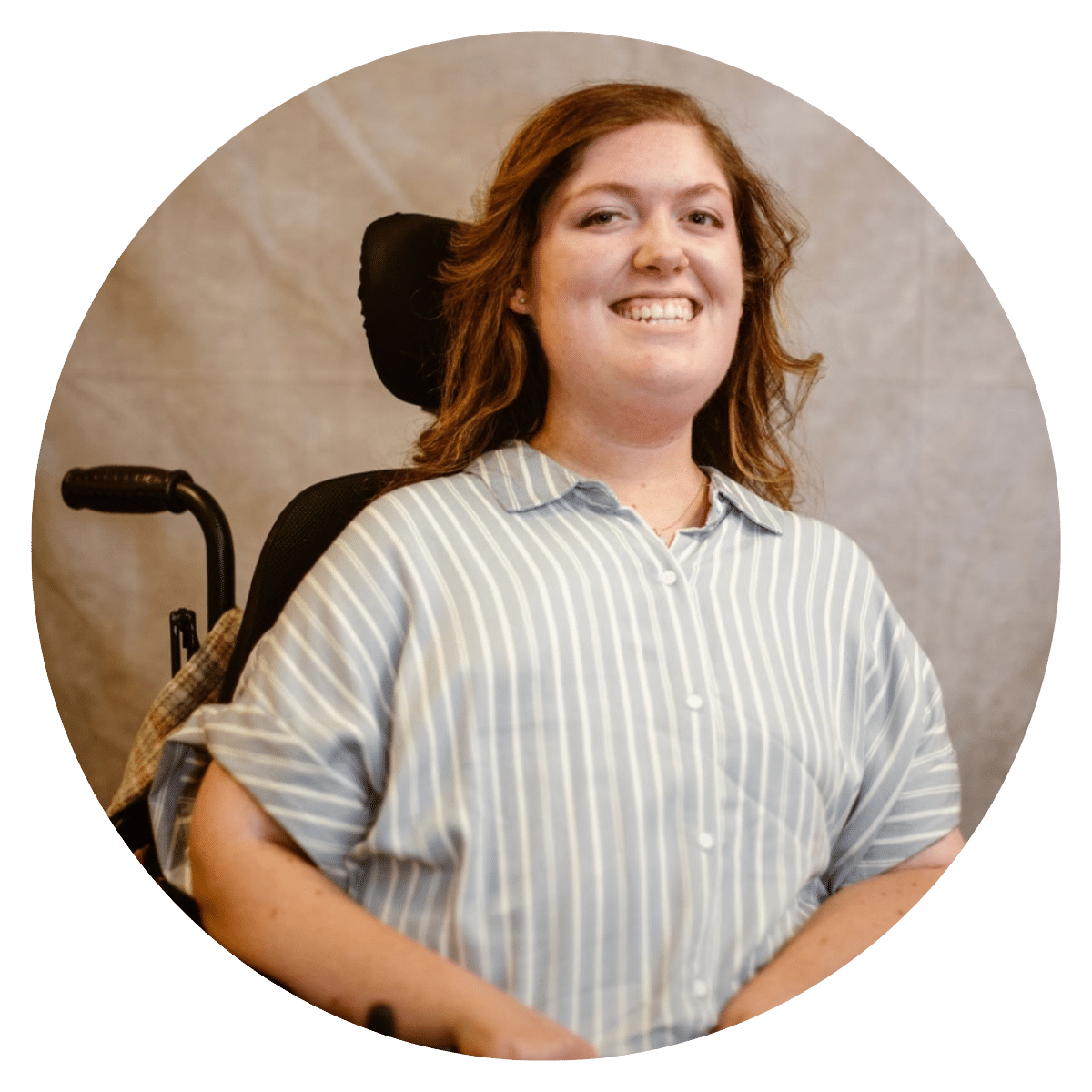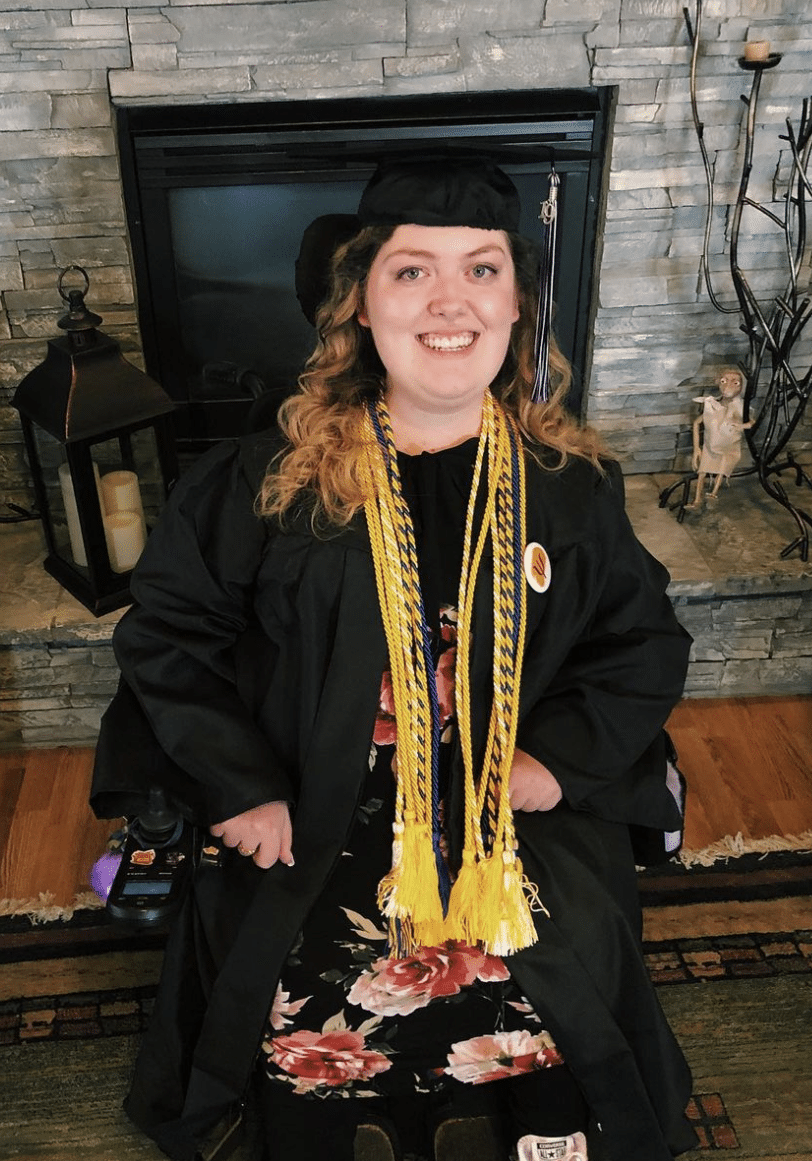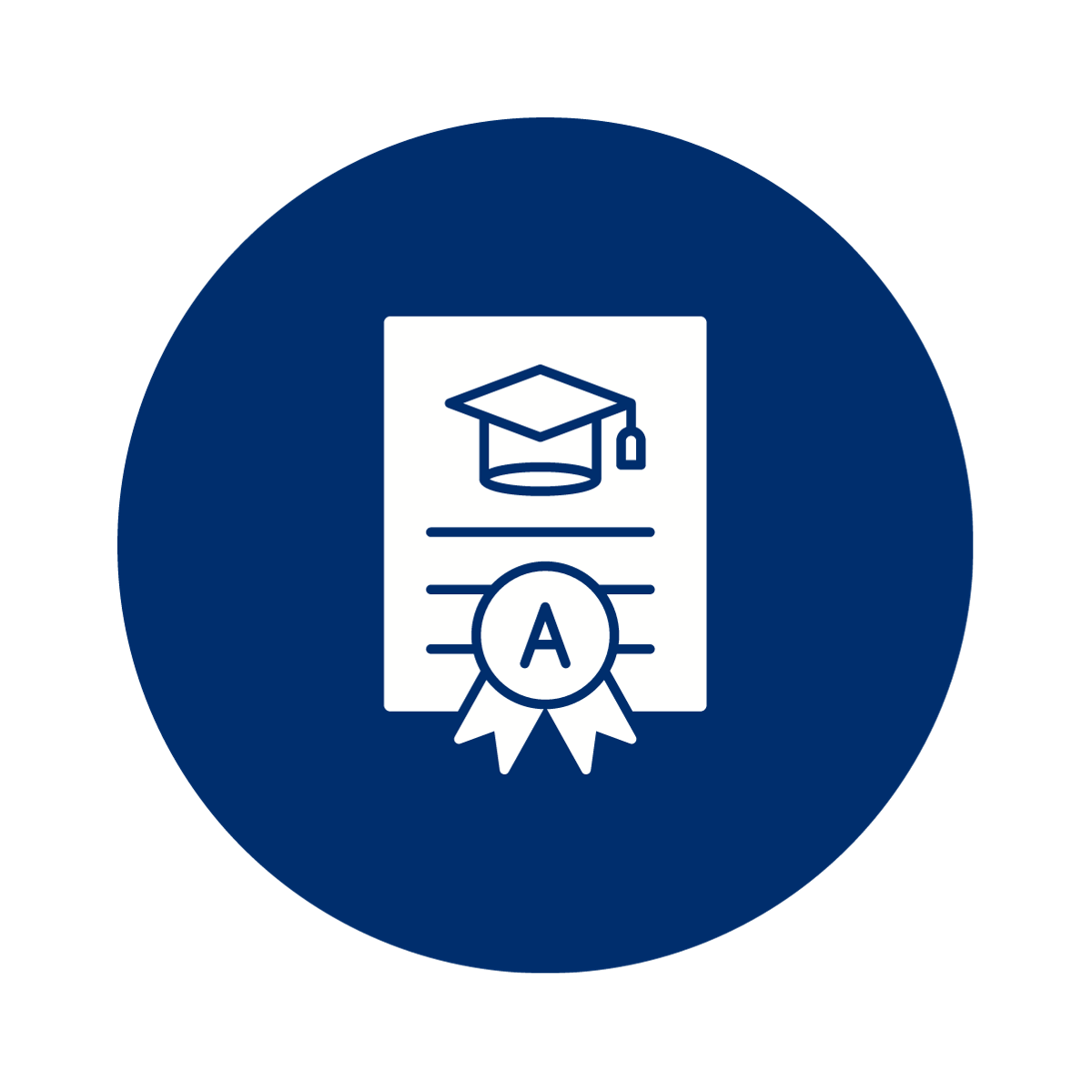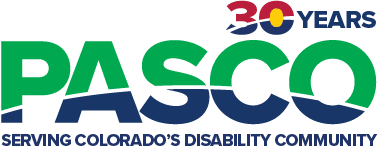The transition into adulthood is hard for anyone – that leap out of your comfort zone and into the unknown, is terrifying, regardless of who you are or what your plans are. If a disability is added to the equation, it feels impossible to know where to start. Trust me, I’ve been there, done that. But as someone who has been through it, I am here to tell you what it’s like on the other side and how I’ve done it.

My name is Zoe, and I am in a power wheelchair and require 24/7 assistance to thrive independently. As I sit here writing this as a recent undergrad graduate, current grad student, and someone who just put in an offer to buy a condo, I understand. I know the dread you or your loved one may be feeling when thinking of graduating high school and leaving home. But I’m also here to show you what I did, and maybe that will help alleviate those feelings.
This entry will focus on the transition steps I took in high school. Follow the series for updates that include the college application process, attending college, and now my current transition post-undergrad.
I was an honors student, a big ol’ nerd who wanted to be challenged just like my able-bodied peers. So, that meant that I did everything they did – I took AP and IB courses, took the SAT and ACT, and graduated high school at the top of my class. The entire time, I was met with push back from administrators claiming they’d never had a student like me, meaning, they’d never had an advanced student who also needed IEP accommodations.
Thanks to my mom, we were always proactive and requested accommodations in advance so there should never be an issue. These accommodations included a private testing room, a scribe (even for math), double time, extra breaks, and a digital calculator. As the advanced testing continued, we also added the use of a small whiteboard so I could solve the equations on my own and let the scribe copy them down in the booklets.

While the accommodations “evened the playing field,” there were still barriers being physically disabled in a public high school. I advocated for a change in the cafeteria tables, arguing that instead of the long rectangles with benches attached, round tables with removable chairs are more accessible and inclusive to all students. They initiated that change by my senior year, but the solution was to remove a bench from four tables (the ones on the ends of the room), giving me a space to park next to my peers.

There were other instances, too. Like the honors ceremony held each semester, awarding and celebrating the students who maintained above a 3.5 GPA. I was invited every semester for the four years, but I never went since it took place on the auditorium stage. Students would be called up to the stage from the audience, go up a few steps, and accept the award. When my mom and I tried to make it where everyone would enter from behind stage (the accessible route), they said I could go backstage, or I could accept my award in front of the stage on the floor. So instead, my family and I celebrated each semester in our own way.
These instances of unintentional discrimination were harmful, they revealed to me how the world simply does not consider people like me. No matter how good of a student I was academically, no matter how involved I was in clubs or theatre, I was consistently overlooked. As I came to my junior and senior years, I had decided that somehow I needed to change this narrative.


